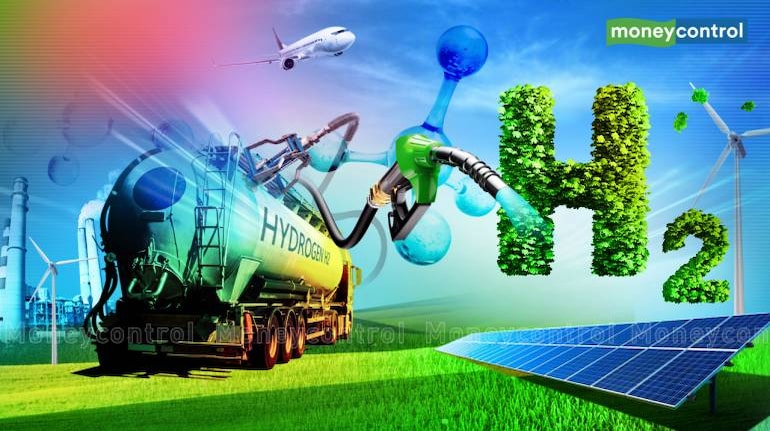



The second Energy Transition Working Group (ETWG) meeting of the G20 concluded recently in Gandhinagar – effectively showcasing India as an emerging energy transition powerhouse. The creation of a green hydrogen economy is one of the key areas of deliberation under India’s G20 Presidency. The needle is moving swiftly on the creation of a robust green hydrogen economy, given its critical role in improving our energy security and diversification. But where and how do we start?
Define It To Scale It
Currently, we have no accepted definition or classification of green hydrogen even amongst the G20 nations. India’s G20 presidency is a great opportunity to mobilise member nations to work towards a globally acceptable standard and certification process. A standard framework for classifying green hydrogen and its derivatives can establish common criteria and provide a clear understanding of what green hydrogen and its derivatives are, which can then enable the development of a transparent, robust, and global marketplace. A standardised framework for defining green hydrogen and its derivatives will facilitate targeted policy interventions and provide clarity and confidence to investors, customers and suppliers.
While there are various established frameworks for defining green hydrogen and its derivatives, the G20 is yet to adopt a dedicated framework for furthering a green hydrogen economy. We must leverage the ongoing green hydrogen work in member nations and collectively develop a synchronised framework for a green hydrogen standard. Drawing from the expertise and learnings of member nations, the framework must underline the various criteria for sustainable green hydrogen production that minimises emissions and other adverse environmental impacts. The framework should clearly list out the specifics of production processes like electrolysis, bioconversion and usage of renewable energy sources (wind, solar, geothermal, or hydropower). This would make the entire certification process transparent, enabling easy and traceable reporting, thus boosting trade.
Mobilise Cross-sectoral Collaborations
Given its complex nature, enabling the creation of a robust supply chain for green hydrogen requires a concerted push among a diverse range of stakeholders engaged in mining of raw materials, technology development, manufacturing, renewable energy and hydrogen production, transportation, storage, and distribution networks. With such a multifaceted production requirement, international cooperation is of paramount importance as no nation can possibly be self-sufficient in all the supply chain requirements. We urgently require a reliable, resilient and cost-effective supply chain that covers all aspects of production including rare earth minerals, advanced technology solutions, research capabilities, industry standards, regulations, and establishment/expansion of production facilities that can then be made accessible to all nations. Based on the availability of resources, and technological and economic capabilities, the G20 member nations can optimally develop certain segments of the supply chain. India through its presidency must push for a global green hydrogen alliance wherein all the nations can collaborate and leverage their strengths and expertise for developing a seamless and resilient green hydrogen supply chain.
Promote Knowledge Sharing and R&D
With most of the green hydrogen technologies at nascent stages, the ecosystem still requires a huge amount of research and development (R&D) and innovation to commercialise and scale technologies across the value chain. To accelerate the development of these technologies, India can facilitate and lead international collaborations that can leverage multilateral/stakeholder engagements to advance ecosystem development. The creation of a reliable value chain necessitates that outcome-oriented R&D projects, large budgetary allocations for fuelling innovation and benchmarking efficiencies are collaboratively pursued by the G20 nations. We must identify key institutes across member nations that can drive these collaborative pursuits through joint research projects, technology transfer agreements, and commercial partnerships. India can emerge as the key facilitator of this critical communication channel among member nations to enable mutual progress towards a common goal of advancing green hydrogen technologies, minimising dependencies on critical raw materials, and reducing duplication of efforts to accelerate a green hydrogen economy.
Why India’s G20 presidency matters
India, through the National Green Hydrogen Mission, has provided a clear roadmap for kickstarting the creation of a green hydrogen economy with an outlay of Rs 19,744 crore. The government is also working on the introduction of incentives for domestic electrolyser production and/or custom duty exemptions on imports to scale production. This gives India an excellent opportunity to lead by example and further empowers it to move the green hydrogen agenda forward among G20 member nations. This, coupled with its soft power appeal and the G20 presidency, offer India the unique capability to steer global conversations towards enhanced collaborations and cooperation for the holistic development of a green hydrogen ecosystem that can support global climate measures. The G20 presidency presents a novel opportunity for India to reinforce its commitments to mitigate climate change while pursuing economic development. With this year’s budgetary focus on ‘green growth’, the creation of a green hydrogen economy is off to a great start.
Pawan Mulukutla is Director, Integrated Transport, Electric Mobility and Hydrogen, WRI India. Anuraag Nallapaneni is Manager, Hydrogen Program, WRI India. Views are personal and do not represent the stand of this publication.
Discover the latest Business News, Sensex, and Nifty updates. Obtain Personal Finance insights, tax queries, and expert opinions on Moneycontrol or download the Moneycontrol App to stay updated!
Find the best of Al News in one place, specially curated for you every weekend.
Stay on top of the latest tech trends and biggest startup news.